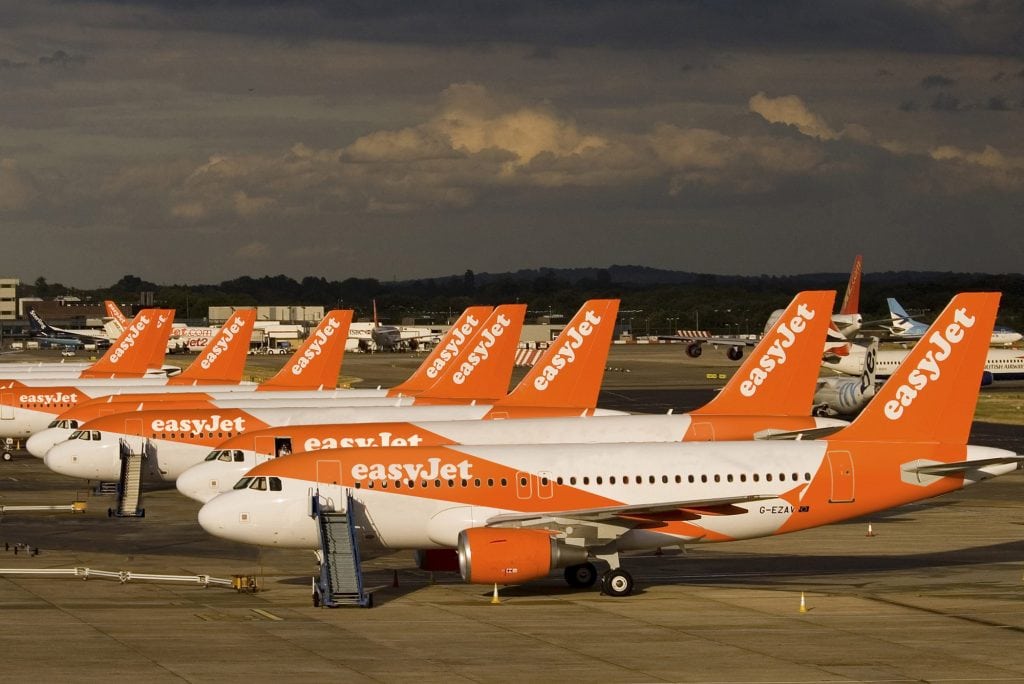Skift Take
It's difficult to tell much from the first quarter results, but EasyJet seems on track to have a decent year. Acquiring some of Air Berlin’s operations will also enable it to grow in the lucrative German market.
Bag fees and other add-on now make up nearly 20 percent of EasyJet’s revenue, but it is very important for the airline to increase that total when measured against its flight ticket revenue.
EasyJet’s ancillary revenue grew by 20 percent in its first quarter with the airline now making $315.7 million (£226.3 million) from add-ons such as checked baggage and allocated seating.
The increase was modest, though. In the three months ending December 31, ancillary revenue represented 19.8 percent of the overall figure – a rise of 0.9 percentage points on the prior year.
Earning more money from selling add-ons is important for EasyJet because it makes the airline less reliant on ticket revenue, and would give the carrier more flexibility.
The airline industry in Europe has gradually woken up to the opportunities surrounding fare unbundling as well as other lucrative revenue streams. Chief executives like Ryanair’s Michael O’Leary and Wow Air’s Skúli Mogensen have even floated the idea that ticket prices could one day reach zero.
Although full-service carriers like Delta Air Lines might make more from ancillaries, they tend to represent a higher position of total revenues for low-cost carriers.
EasyJet still has some way to go before it can match its peers. In Ryanair’s third quarter results last year (its equivalent to EasyJet’s Q1s), ancillary revenue represented 41.5 percent of the total figure. In the same time period Wizz Air’s ancillary revenue was 43.8 percent of the total.
German Growth
EasyJet completed the acquisition of Air Berlin’s Berlin Tegel airport operations in December and started flights on January 5.
The deal gives EasyJet a much bigger foothold in the German market, enabling it to better compete with the likes of Ryanair and Lufthansa.
EasyJet expects to lose around $84 million (£60 million) from the new Berlin operations plus an additional $139 million (£100 million) in associated costs.
Solid first quarter
EasyJet did not include details on profits in its first-quarter release but the upbeat tone suggests CEO Johan Lundgren, who replaced Carolyn McCall in December, is in for a good year.
The carrier has benefited from the demise of Air Berlin and Monarch, as well as the flight cancellations at Ryanair.
EasyJet has already secured around 60 percent of its expected bookings for the second quarter, slightly above last year.
“EasyJet delivered a strong start to the financial year with a significant growth in revenue in part driven by an increase in passengers flown and strong growth in inflight and ancillary sales as we offer more and better quality options for our passengers,” said CEO Lundgren.
“My aim is to help easyJet to go from strength to strength. Our customer proposition will continue to drive both passenger growth and loyalty. We have great revenue growth, strong cost control, a robust operation and a strong balance sheet.”
The Daily Newsletter
Our daily coverage of the global travel industry. Written by editors and analysts from across Skift’s brands.
Have a confidential tip for Skift? Get in touch
Tags: airline innovation, ancillary services, easyjet, fees, low-cost carriers, ryanair, wow air
Photo credit: EasyJet aircraft. The airline bought part of Air Berlin in December. EasyJet
